What exactly is a CRM?
CRM, which stands for customer relationship management, is a powerful tool that allows businesses to effectively manage their interactions with customers throughout the entire customer journey. It provides contact management software for teams that deal with customers and sales, enabling them to effortlessly keep track of customer interactions, preferences, and needs.
With CRM, businesses can gain valuable insights into their customers' activities across various sales channels. Unlike conventional CRMs, which often struggle to integrate with critical data sources such as ERP systems, product information databases (PIM), document storage, and e-commerce platforms, a robust CRM solution seamlessly integrates with these systems. This integration ensures that sales representatives have access to essential information such as customer profiles, order history, and online browsing behavior, enabling them to personalize sales interactions and provide exceptional customer experiences.
Here are the most powerful CRM systems:
The Challenges Distributors Encounter with Conventional CRMs
Limited Customer Insight
Old-school CRMs don`t provide distributors with a complete view of their customers' activities across various sales channels. They struggle to integrate with critical data sources such as ERP systems, product information databases (PIM), document storage, and e-commerce platforms. This creates problems for sales representatives trying to access essential information like customer profiles, order history, or online browsing behavior, hindering their ability to personalize sales interactions.
Manual Data Entry
Many salespeople view CRM usage as a burdensome chore rather than a valuable tool. The need for extensive manual data entry can make them feel more like a burden than an advantage. CRMs are usually considered as a tool for sales managers to track activity rather than a tool to assist salespeople in achieving their sales objectives.
Reactive Rather than Proactive Sales
Collecting customer and product data manually for traditional CRMs can be a tedious and time-consuming task for sales reps. This often leads them to rely on generic, reactive sales strategies instead of creating tailored, proactive approaches. Sales reps may also struggle to navigate multiple systems to find up-to-date product information, affecting their overall efficiency.
The Mobile Dilemma
While some CRMs claim to be mobile-friendly, in reality, they can be frustrating for sales reps to use or have limited functionality. A common problem among outside sales reps is having to rely on internal and customer support teams to access basic information that should be readily available on their mobile devices.
In the product-centric world of distribution, you require a CRM solution capable of seamlessly integrating with and managing vast product data and sales transactions. This enables your sales team to nurture existing customer relationships and drive customer satisfaction. When your ERP, PIM, e-commerce platform, and CRM work in harmony, your commercial team becomes more effective. They can provide proactive, issue-solving experiences that entice customers to return for more.
Benefits of Using CRM for Distributors and Wholesalers

Wholesale distribution CRM software can help distributors in several ways:
- Centralized Data: It consolidates essential data onto a single screen, providing a comprehensive view of customer interactions, product details, and team effectiveness.
- Smart Prioritization: By considering factors like customer status, recent activities, and potential revenue impact, it helps prioritize actions efficiently.
- Better Efficiency: It reduces the time spent on repetitive administrative tasks, freeing up sales reps to focus on delivering exceptional customer support, nurturing relationships, and driving sales growth.
- Streamlined Management: The software simplifies lead and pipeline management by tracking leads, assigning tasks to team members, and monitoring progress toward sales targets.
Must-Have CRM Features for Distributors
A top-notch CRM for the distribution industry should include these essential functionalities:
- Accounts: It's crucial to identify which businesses or organizations are your current clients or potential future customers. A CRM can offer a centralized view of each account.
- Contacts: Contact details are a goldmine of information, including customer names, titles, phone numbers, email addresses, and useful notes that can aid in nurturing relationships.
- Opportunities: CRMs excel at connecting contacts and accounts with potential sales, streamlining your ability to monitor everything from one convenient location.
Every reputable CRM offers these fundamental features. However, when selecting your CRM for wholesale distributors, keep an eye out for these additional capabilities:
- Products: A robust CRM seamlessly integrates product data from your Product Information Management (PIM) system or wherever your product information resides. This equips your sales team with a wealth of product details at their fingertips. The most exceptional CRMs go a step further by offering AI-driven product recommendations, enabling reps to discover suitable substitutes and complementary products within the CRM.
- Reporting: Look for a system equipped with robust tools. These include reports on your sales pipeline, product attributes (like vendor or manufacturer), and usage insights to coach your sales teams effectively.
- Predictive Analytics: Your CRM should empower your sales reps with mechanisms that guide them toward the right customers and sales opportunities. Distributors often deal with high volumes of data, making AI-powered insights invaluable for helping sales reps determine who to reach out to and what to offer.
- Integration: Seek a CRM that offers pre-built connections to commonly used distribution technologies, including ERP systems, PIMs, document storage solutions, and e-commerce platforms. The more seamlessly your CRM integrates with these tools, the fewer screens your teams have to juggle in their day-to-day operations.
Your best CRM for distributors should facilitate the addition of products, activity tracking, and efficient management of your sales pipeline, particularly in multi-stage procurement and sales processes. Make sure your chosen CRM empowers your team to excel in the dynamic world of distribution.
The Top 9 CRMs for Wholesale Distributors
Here are the most popular CRM systems for wholesale distributors:
1. Netsuite CRM
Netsuite CRM empowers you with a holistic perspective of your potential clients, loyal customers, partners, and trusted vendors, all geared toward delivering a top-notch customer experience.
Prime Features:
- Efficient Cash Flow Management: Keep a keen eye on your finances by tracking and allocating expenses for specific projects.
- Comprehensive Dashboard: Access a comprehensive dashboard enriched with GANTT charts, tasks, and key performance indicators (KPIs) to stay in control.
Pros:
- Open API for Seamless Integrations: Netsuite CRM seamlessly integrates with other software systems, thanks to its open API.
- Personalized Dashboards: Each team member benefits from tailor-made dashboards that cater to their unique needs.
- Streamlined Invoicing: Convert estimates into invoices effortlessly with a single click.
Cons:
- Limited Outlook Integration: The integration with Outlook needs some improvement.
- Invoicing Hassles: Sending invoices individually can be a time-consuming task.
Pricing:
Netsuite CRM doesn't provide its pricing information on its website, but you can easily get in touch with them for more details.
2. SysAid
SysAid offers a streamlined approach to your CRM system workflow, enhanced by its robust service automation capabilities.
Prime Features:
- Ticket Automation: Effortlessly categorize and direct each ticket to the appropriate agent.
- One-Click Automation: Say goodbye to repetitive and error-prone tasks with a single click.
Pros:
- User-Friendly: SysAid is designed with ease of use in mind.
- Hassle-Free Setup: Installation and configuration are a breeze.
- Stellar Customer Support: Rely on excellent customer service from the SysAid team.
- Comprehensive IT Management Tools: Benefit from a wide range of tools for managing your IT tasks.
Cons:
- Limited Email Customization: There's minimal flexibility when it comes to customizing emails.
- Desktop Support Constraints: The desktop version lacks certain support features.
- Cloud Version Performance: Users have reported slower performance in the cloud-based version of SysAid.
Pricing:
While this CRM software for wholesale distributors doesn't provide its pricing information on its website, don't hesitate to get in touch with them for detailed pricing information.
3. Keap
Keap offers an effective blend of sales and marketing automation, tailor-made for small businesses in search of software with robust customer segmentation capabilities.
Prime Features:
- Effortless Contact Management: Enjoy automatic updates to your contact information.
- Tagging for Segmentation: Create custom tags to categorize and segment your contacts effectively.
Pros:
- Extensive Training Resources: Access comprehensive training to master the system.
- Automated Long-Term Engagement: Nurture client relationships effortlessly over time.
- Robust Customer Support: Rely on responsive customer support, including live chat assistance.
Cons:
- Learning Curve: Be prepared for a somewhat steep learning curve when getting started.
- Unsaved Information: Remember to save your work, as unsaved information can be lost.
- Search Tool Limitations: There are certain limitations with the search tool.
- Firefox Compatibility: Note that Keap's Campaign Builder may not be fully supported in Firefox.
Pricing:
Keap offers three pricing options:
- Pro: $159 per month for 2 users (with an additional $29 per user)
- Max: $229 per month for 3 users (with an additional $29 per user)
- Max Classic: For details, get in touch with their team.
4. Method:CRM
If you're a wholesale distributor relying on QuickBooks or Xero, Method:CRM is the software you've been dreaming of. This CRM offers a real-time, two-way connection with your accounting software, along with a smart CRM workflow tailored perfectly for wholesale distributors. With its robust capabilities, it stands as one of the finest CRM systems available for small businesses.
Prime Features:
- Streamlined Lead Collection: Say goodbye to manual data entry with automated web-to-lead forms.
- Effortless Workflow: Easily set up and manage your processes with drag-and-drop automation.
- Seamless Accounting Integration: Enjoy instant synchronization of estimates, invoices, and payments with QuickBooks or Xero.
- 24/7 Customer Portals: Serve your customers round the clock through online portals.
- Comprehensive Customer View: Get a 360-degree perspective of each customer, including their history and interactions.
Pros:
- Robust QuickBooks and Xero Integration: Enjoy powerful, two-way connections with your accounting software.
- Limitless Customization: Tailor Method:CRM to your exact needs.
- Reusable Templates: Save time with reusable email, report, and transaction templates.
- Effortless Estimate Conversion: Turn estimates into invoices with just a few clicks.
- Extensive Third-Party Integrations: Seamlessly connect with Gmail, Zapier, Outlook, and more.
Cons:
- Language Limitation: Currently available only in English.
- Accounting Software Dependency: Limited to QuickBooks and Xero users.
Pricing:
Method:CRM offers flexible pricing plans to suit your needs:
- Contact Management: $25 per user per month.
- CRM Pro: $44 per user per month.
- CRM Enterprise: $74 per user per month.
5. SAP Customer Experience
SAP Customer Experience seamlessly combines customer relationship management and enhancing customer experiences into one powerful tool, offering a range of dynamic features.
Prime Features:
- Customer Profile Building: Create comprehensive customer profiles to gain valuable insights from your data.
- AI-Powered Loyalty Insights: Leverage AI-driven insights to foster customer loyalty.
- Holistic Business Models: Get a clear overview of inventory, supply chains, and customer interactions with end-to-end business models.
Pros:
- User-Friendly: SAP Customer Experience is designed as an easy-to-use CRM for distributors.
- Great Customer Support: Count on reliable customer support.
- Versatile Across Industries: The product caters to a wide array of major industries.
Cons:
- High Training and Maintenance Costs: Be prepared for high training and maintenance expenses.
- Troubleshooting Complexity: Identifying the root causes of errors can be challenging.
Pricing:
While pricing details for this CRM software for wholesale distributors system aren't available online, you can reach out to them directly for comprehensive pricing information.
6. Odoo
Odoo stands as a platform, an ecosystem of open-source applications meticulously designed to collaborate seamlessly. These apps span a multitude of categories, including sales, marketing, website management, finance, inventory, manufacturing, HR, services, and productivity.
Prime Features:
- A Comprehensive App Ecosystem: Embrace a full spectrum of apps, modules, and add-ons.
- Perfect Integration: Odoo apps seamlessly work with each other, ensuring a harmonious workflow.
- Communication Mastery: Connect with VoIP and email gateways to maintain command over outgoing messages.
- Tailored Solutions: Explore the Odoo marketplace, offering organizations a wide range of customizable, ready-made apps.
Pros:
- Free First App: Your initial app with Odoo comes at no cost, complete with hosting and support.
- Seamless Odoo Harmony: Enjoy full-scale integration with other Odoo apps.
Cons:
- Customization Complexity: While open-source software provides freedom, specific customization often demands a dedicated development team.
- Third-Party Integration: Odoo lacks native integration with third-party software.
Pricing:
Odoo's pricing model is as follows:
- The first app is free, with unlimited users.
- Access to all apps costs €11.90 per user per month.
- Custom pricing is available at €17.90 per user per month.
7. ServicePRO
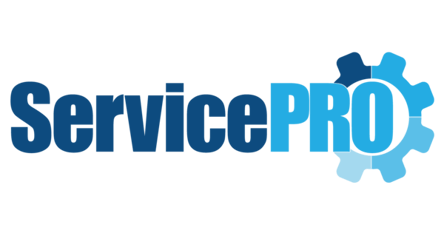
ServicePRO automates your service desk and organizes your CRM workflows for distributors through an array of impressive features detailed below.
Prime Features:
- Streamlined Project Management: Utilize project templates to effortlessly oversee multi-task activities.
- Efficient Service Desk: Benefit from automated request escalations for a smoother service experience.
- AI-Powered Virtual Assistant: Interact with an AI-based virtual assistant, available on webpages and service portals.
Pros:
- User-Friendly Interface: Navigate with ease thanks to an intuitive interface.
- Stellar Implementation Support: Rely on excellent assistance during implementation.
- Seamless Software Integration: Enjoy integration capabilities with software like QuickBooks and Netsuite.
Cons:
- Resolving Frequent Issues: Addressing common problems may require data or program fixes.
- Mobile Application: The mobile app's performance can be sluggish at times.
Pricing:
While this CRM software for wholesale distributors doesn`t provide pricing details on the website, you can reach out to them directly for comprehensive pricing information.
8. Genoo
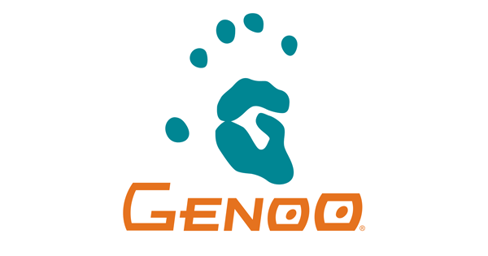
Genoo stands as a robust CRM system tailored to the needs of small and medium-sized businesses, offering a range of features perfectly suited to their requirements.
Prime Features:
- Marketing Automation: Harness the power of marketing automation software with user-friendly responsive templates.
- Lead Interest Tracking and Scoring: Keep tabs on your leads' interests and score them accordingly.
- Effortless Form Creation: Create customized website forms with just a single click.
Pros:
- Comprehensive Training: Access training that includes an email marketing module for skill enhancement.
- WordPress Integration: Enjoy a free Genoo plugin for WordPress integration.
- Outstanding Customer Support: Rely on exceptional customer support to assist you when needed.
Cons:
- Complex Campaign Builder: Some users may find the automated campaign builder to be overly intricate.
- User-Friendliness Improvement: Genoo could benefit from enhanced user-friendliness.
Pricing:
Genoo offers flexible pricing options based on either email volume or the number of leads:
Pay per Email:
- Standard: $199 per month for up to 3 users.
- Premium: $599 per month for up to 10 users.
- Elite: $1495 per month for up to 50 users.
Pay per Lead:
- Standard: $274 per month for up to 3 users.
- Premium: $839 per month for up to 10 users.
- Elite: $1995 per month for up to 50 users.
9. NICE CXone
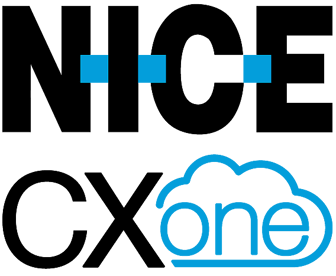
NICE CXone has earned its reputation as a frontrunner in cloud-based customer experience solutions. Let's delve into the impressive capabilities that make it a standout CRM system for wholesale distributors.
Prime Features:
- Customer Self-Service Automation: Embrace automated self-service options that cater to your customers' needs.
- AI-Powered Hyper-Personalization: Utilize AI to create hyper-personalized routing for enhanced customer interactions.
- Real-Time Agent Guidance: Leverage behavioral insights for real-time agent guidance.
Pros:
- Extensive Profile Customization: Enjoy a high degree of customization for customer profiles.
- User-Friendly Interface: Navigate with ease through a user-friendly interface.
- Seamless Integration: Experience straightforward integration with other systems.
Cons:
- Dashboard Overcrowding: Excessive user access may clutter the dashboards.
- Analytical Challenges: Some users find the analytics tools challenging to use and call for improved accuracy.
- Support Problems: Customer support has room for improvement, as reported by some users.
Pricing:
While pricing details aren't readily available on their website, don't hesitate to reach out to them for comprehensive pricing information.
Final Thoughts
SMBs CRM Software
-1.png)
4.2
In summary, CRM software has become a must-have tool for distributors operating in today's competitive business environment. Making the right choice can significantly boost customer relationships and, ultimately, lead to success. The software options we've discussed each bring distinctive features and abilities to the table, addressing various aspects of a distributor's operational requirements. We hope you choose the best CRM for distributors for your business needs!

.png)
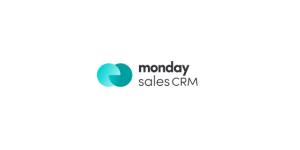

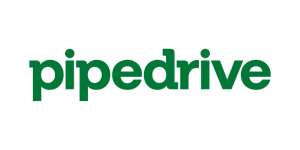
-Mar-27-2024-12-01-50-9736-PM.png?width=455&height=256&name=NetSuite-Logo%20(1)-Mar-27-2024-12-01-50-9736-PM.png)
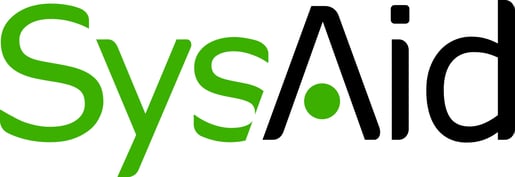



.png?width=140&height=140&name=Noah%20(1000%20x%201000%20px).png)



